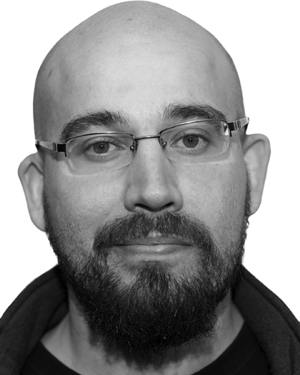Abstract:
Effective educational interventions require sufficient learner engagement, which can be difficult to achieve if the learner is inadequately motivated. Games have been sho...Show MoreMetadata
Abstract:
Effective educational interventions require sufficient learner engagement, which can be difficult to achieve if the learner is inadequately motivated. Games have been shown to possess powerful motivators that fuel a person's desire to engage in unattractive activities, such as learning theoretical material. However, to design an educational game that is capable of providing motivated engagement is a challenging task. Previous research has proposed various game motivators and game design principles to alleviate this, but a comprehensive synthesis has yet to appear. In this article, we conducted a systematic literature review that yielded two major contributions: 1) a taxonomy of 56 game motivators in 14 classes; and 2) a taxonomy of 54 educational game design principles in 13 classes, with linkages to the identified game motivators. As a minor contribution, we have also presented a classification of gamification-related terms and proposed different strategies for applying gamification. The results of this article are available for educational game designers and researchers to use as a practical toolkit for the creation and evaluation of motivating educational games that keep players engaged. Moreover, this article is the first step toward the creation of a unified gamification framework.
Published in: IEEE Transactions on Learning Technologies ( Volume: 13, Issue: 4, 01 Oct.-Dec. 2020)
Funding Agency:

Department of Computer Science, Electrical and Space Engineering, Luleå University of Technology, Skellefteå, Sweden
Teemu H. Laine received the Ph.D. degree in computer science from the University of Eastern Finland, Joensuu, Finland, in 2012.
After working as an Assistant Professor at Ajou University, Suwon, South Korea, he became an Associate Professor at the Luleå University of Technology, Skellefteå, Sweden, in 2017. In autumn 2020, he moved back to Ajou University and is currently working as an Associate Professor. He has a strong ...Show More
Teemu H. Laine received the Ph.D. degree in computer science from the University of Eastern Finland, Joensuu, Finland, in 2012.
After working as an Assistant Professor at Ajou University, Suwon, South Korea, he became an Associate Professor at the Luleå University of Technology, Skellefteå, Sweden, in 2017. In autumn 2020, he moved back to Ajou University and is currently working as an Associate Professor. He has a strong ...View more

Department of Computer Science, Vrije Universiteit Brussel, Brussels, Belgium
Renny S. N. Lindberg received the master's degree in computer science and engineering from Ajou University, Suwon, South Korea, in 2017. He is currently working toward the Ph.D. degree with Vrije Universiteit Brussel, Brussels, Belgium.
His research largely focuses on gamification and his current research interest includes the domain of civic engagement.
Renny S. N. Lindberg received the master's degree in computer science and engineering from Ajou University, Suwon, South Korea, in 2017. He is currently working toward the Ph.D. degree with Vrije Universiteit Brussel, Brussels, Belgium.
His research largely focuses on gamification and his current research interest includes the domain of civic engagement.View more

Department of Computer Science, Electrical and Space Engineering, Luleå University of Technology, Skellefteå, Sweden
Teemu H. Laine received the Ph.D. degree in computer science from the University of Eastern Finland, Joensuu, Finland, in 2012.
After working as an Assistant Professor at Ajou University, Suwon, South Korea, he became an Associate Professor at the Luleå University of Technology, Skellefteå, Sweden, in 2017. In autumn 2020, he moved back to Ajou University and is currently working as an Associate Professor. He has a strong track record in researching context-aware games and applications for education and well-being. His other research interests include augmented and virtual reality, human–computer interaction, system architectures, and artificial intelligence.
Teemu H. Laine received the Ph.D. degree in computer science from the University of Eastern Finland, Joensuu, Finland, in 2012.
After working as an Assistant Professor at Ajou University, Suwon, South Korea, he became an Associate Professor at the Luleå University of Technology, Skellefteå, Sweden, in 2017. In autumn 2020, he moved back to Ajou University and is currently working as an Associate Professor. He has a strong track record in researching context-aware games and applications for education and well-being. His other research interests include augmented and virtual reality, human–computer interaction, system architectures, and artificial intelligence.View more

Department of Computer Science, Vrije Universiteit Brussel, Brussels, Belgium
Renny S. N. Lindberg received the master's degree in computer science and engineering from Ajou University, Suwon, South Korea, in 2017. He is currently working toward the Ph.D. degree with Vrije Universiteit Brussel, Brussels, Belgium.
His research largely focuses on gamification and his current research interest includes the domain of civic engagement.
Renny S. N. Lindberg received the master's degree in computer science and engineering from Ajou University, Suwon, South Korea, in 2017. He is currently working toward the Ph.D. degree with Vrije Universiteit Brussel, Brussels, Belgium.
His research largely focuses on gamification and his current research interest includes the domain of civic engagement.View more

